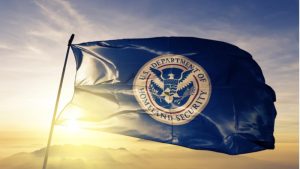The University of Cincinnati (UC) has agreed to partner with Nexigen, an information technology and cybersecurity firm, to secure grants for research on artificial intelligence (AI) development, including efforts on how to make the technology more secure.
For government agencies of all sizes – the goal of IT Service Management (ITSM) is to support the external services agencies provide to their constituents. And while ITSM maturity might vary depending on the organization – providing the best service is always the goal. “Most agencies are doing ITSM whether they know it or not,” […]
University of Wisconsin-Madison announced that students, faculty, and staff will now have access to Microsoft Copilot, the tech company’s generative artificial intelligence (AI) platform.
The Department of Homeland Security (DHS) has announced the establishment of the Artificial Intelligence Safety and Security Board, which will consider ways to promote the safe and secure use of AI technology in U.S. critical infrastructure.
The No Tech Criminalization in Education Coalition (NOTICE) and more than 40 other civil rights and education organizations sent a letter to the U.S. Department of Education (ED) last month calling for a ban on Federal funding for school surveillance systems that rely on algorithms and other artificial intelligence (AI)-enabled technology for predictive policing and other harmful practices.
The District of Columbia’s Office of the Chief Technology Officer (OCTO) has launched a public beta version of the “DC Compass,” which uses generative artificial intelligence (GenAI) to answer data-oriented civic questions and create maps from thousands of open data sets.
Joining a chorus of other states and localities looking to address the use of generative artificial intelligence (GenAI), Baltimore Mayor Brandon Scott has issued an executive order (EO) designed to govern the use and development of AI within city operations.
Pace University is launching a new AI lab at its New York City campus as part of the university’s Seidenberg School of Computer Science and Information Systems.
2024 was the first year that artificial intelligence (AI) appeared on the National Association of State Chief Information Officers’ (NASCIO) list of top priorities for state CIOs. Also for the first time ever, digital government services and cybersecurity tied for the top priority spot.
A new survey from the National 4-H Council found that tweens and teens believe that generative AI will benefit their education and careers, but that they also have concerns about cheating and privacy. The survey further found that these students want support from adults in learning how to use AI tools correctly and with confidence.








